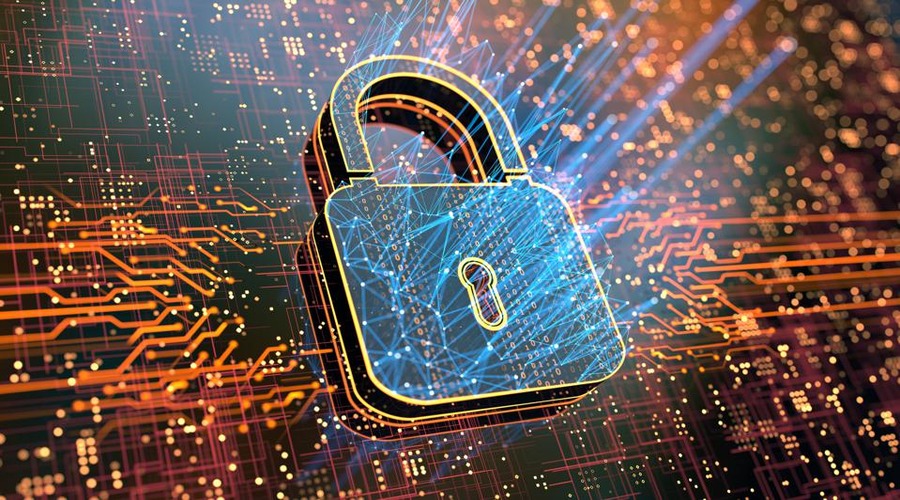
How to Safely and Securely Store Your Cryptocurrency
- Antonio Anderson
- April 4, 2023
- Crypto
- blockchain, crypto wallets, cryptocurrency, digital assets, security
- 0 Comments
Cryptocurrency has taken the world by storm, with more and more people investing in digital assets. However, as with any valuable asset, it’s essential to keep your cryptocurrency safe and secure. In this article, we will discuss the best practices for storing your cryptocurrency to keep it safe from hackers and potential theft.
What is Cryptocurrency Storage?
Before we dive into the best ways to store your cryptocurrency, it’s essential to understand what cryptocurrency storage is. Cryptocurrency storage refers to the methods and tools used to keep your digital assets safe and secure. There are various methods for cryptocurrency storage, ranging from hot wallets to cold wallets.
Hot Wallets
Hot wallets are online wallets that store your cryptocurrency on a server that is connected to the internet. These wallets are easy to use, convenient, and allow quick access to your digital assets. However, they are also the most vulnerable to hacking and theft. Hackers can gain access to hot wallets and steal your cryptocurrency, leaving you with nothing.
Cold Wallets
Cold wallets are physical devices that store your cryptocurrency offline. These wallets are not connected to the internet, making them immune to hacking attempts. Cold wallets are the safest way to store your cryptocurrency, but they are also the least convenient. You need to physically connect the wallet to your computer to access your digital assets.
Hardware Wallets
Hardware wallets are the most popular type of cold wallet. They are small devices that you can connect to your computer or mobile phone to access your cryptocurrency. Hardware wallets come with a PIN code, making them secure from theft. If someone steals your hardware wallet, they cannot access your digital assets without the PIN code.
Paper Wallets
Paper wallets are another type of cold wallet that involves printing out your public and private keys on paper. You can then store this paper in a safe place. Paper wallets are free and easy to create, but they are also the least secure. If someone finds your paper wallet, they can access your digital assets.
Multi-Signature Wallets
Multi-signature wallets require multiple signatures to access your cryptocurrency. This type of wallet is more secure than a single-signature wallet because it requires multiple people to approve any transaction. Multi-signature wallets are commonly used by businesses to keep their cryptocurrency safe.
Understanding the Risks Involved in Cryptocurrency Storage
Storing cryptocurrency involves certain risks that you must be aware of. The following are some of the significant risks associated with cryptocurrency storage:
Security Breaches and Cyber-Attacks
The digital nature of cryptocurrency makes it vulnerable to security breaches and cyber-attacks. Cryptocurrency exchanges are popular targets for hackers due to the large amount of cryptocurrency they hold. Once a hacker gains access to an exchange, they can steal the cryptocurrency from the exchange and its users.
Hardware Failures
Hardware wallets are popular for cryptocurrency storage due to their security features. However, hardware wallets can also fail, and if you do not have a backup, you may lose your investment.
Human Error
Human error is another significant risk associated with cryptocurrency storage. For example, you may forget your password or lose your private key, making it impossible to access your cryptocurrency.
Best Practices for Storing Your Cryptocurrency
- Choose a reputable exchange: If you plan to trade your cryptocurrency on an exchange, make sure to choose a reputable one. Look for an exchange that has a good reputation and uses the latest security measures.
- Use a strong password: When creating an account on an exchange or setting up a wallet, make sure to use a strong password. Your password should be at least 12 characters long and include a combination of uppercase and lowercase letters, numbers, and symbols.
- Enable two-factor authentication: Two-factor authentication adds an extra layer of security to your account. It requires you to enter a code sent to your mobile phone or generated by an app before accessing your account.
- Keep your private keys safe: Your private keys are the key to your digital assets. Keep them safe and secure by storing them offline in a cold wallet or paper wallet.
- Regularly back up your wallet: Make sure to regularly back up your wallet to prevent the loss of your digital assets in case of a hardware failure or theft.
- Use a dedicated computer: If you’re using a hot wallet, consider using a dedicated computer for your cryptocurrency transactions. This computer should not be used for any other online activity to minimize the risk of malware or viruses.
- Keep your software up-to-date: Make sure to regularly update your wallet software and any other software you use for cryptocurrency transactions. These updates often include security patches that can help keep your digital assets safe.
- Use a VPN: If you’re accessing your cryptocurrency wallet or making transactions on a public Wi-Fi network, use a virtual private network (VPN) to encrypt your data and protect your privacy.
- Store your hardware wallet safely: If you’re using a hardware wallet, make sure to store it in a safe place. Consider using a fireproof and waterproof safe or a safety deposit box at a bank.
- Don’t share your private keys: Never share your private keys with anyone. Your private keys should only be known by you and stored in a safe place.
Conclusion
In conclusion, cryptocurrency storage is an essential aspect of investing in digital assets. It’s important to understand the different types of wallets available and the best practices for keeping your digital assets safe and secure. Choosing a reputable exchange, using strong passwords and two-factor authentication, and storing your private keys offline are some of the key steps you can take to protect your cryptocurrency.
Investing in a hardware wallet is also an excellent option for those who prioritize security over convenience. By using a dedicated computer, keeping your software up-to-date, and using a VPN, you can further enhance the security of your cryptocurrency transactions.
FAQs
- Is it safe to store my cryptocurrency on an exchange?
No, it is not safe to store your cryptocurrency on an exchange. Exchanges are vulnerable to security breaches and cyber-attacks, and you may lose your investment. - What is a hardware wallet?
A hardware wallet is a physical device that stores your private keys offline, making them less vulnerable to cyber-attacks. - Can I recover my cryptocurrency if I lose my private key?
No, you cannot recover your cryptocurrency if you lose your private key. It is essential to keep your private keys safe and secure. - What is cold storage?
Cold storage refers to storing your cryptocurrency offline, making it less vulnerable to cyber-attacks. - How often should I back up my wallet?
It is essential to back up your wallet regularly, at least once a month, to avoid losing your investment in case of hardware failure or human error.





